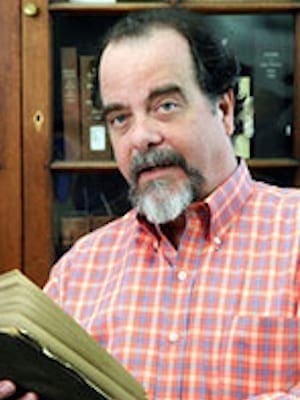What do a Hebrew poet, a Roman deity, and a Garth Brooks song have in common?
The Hebrew poet is the writer of Ecclesiastes (also called Qoheleth). The Roman deity is Janus, the keeper of gates and doorways who is remembered in the name of the first month of the year, January, the gateway month of every new year. The Garth Brooks song is “The Dance,” with its haunting opening words, “Looking back ….”
What do they have in common?
Qoheleth, Janus, and Garth Brooks all know that time stretches both forward and backward. We know it too, but we need to be reminded every now and again.
The Hebrew poet gives us the image of time that forms a circle, “there is a time for every matter under heaven,” and teaches us that life is constantly moving between the upside and downside, and that God is always present. Laughter will give way to tears and tears will give way to laughter, for example. That is the rhythm of life, the rhythm of God in life.
The very image of Janus tells the truth of time that moves forward and backward. Janus is that two-faced Roman god who constantly looks to the past and to the future. The wisdom of Janus is hard to miss. Moving toward the future without taking seriously the lessons of the past is folly. Likewise, trying to preserve a past without regard for a changing future is foolish.
And Garth. In “The Dance” he reminds us that the future is always the place where the mysteries of the past are revealed. With more emotion than we can sometimes bear he strikes the truth that today’s pain is almost always the fruit of yesterday’s pleasure. “I could have missed the pain,” he sings, “but I’d a had to miss the dance.”
Put aside the calendar for a moment. The calendar offers an illusion of objectivity, certainty and order. The calendar, like the clock, is a convenient—and even necessary—way to keep up with schedules, appointments and commitments. The calendar and clock may help order our lives, but they do not help us plumb the depth of our lives. What is real in life is more than calendar and clock.
Plumbing the depth of our lives requires the likes of Qoheleth, Janus and Garth Brooks. They remind us of the vital and spiritual, yes, the spiritual, dimension of marking time. To think of time only in objective or scientific terms robs us all of the rich horizon of life. Marking time is a necessary part of our shared lives. Schedules, appointments and commitments are important. But life is more than following a calendar or clock.
Marking time with attention to the spiritual means that we are part of the passing of time, part of what is enduring about time, part of mystery of God’s presence in the midst of time itself.
So mark time. Mark time with your heart and soul as well as with your calendar and clock.
Richard Wilson is professor of theology and chair of the Roberts Department of Christianity at Mercer University in Macon, Ga.

